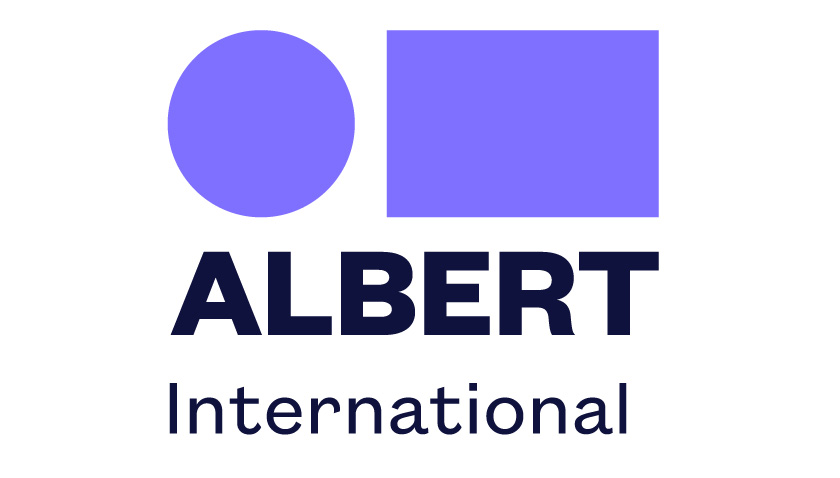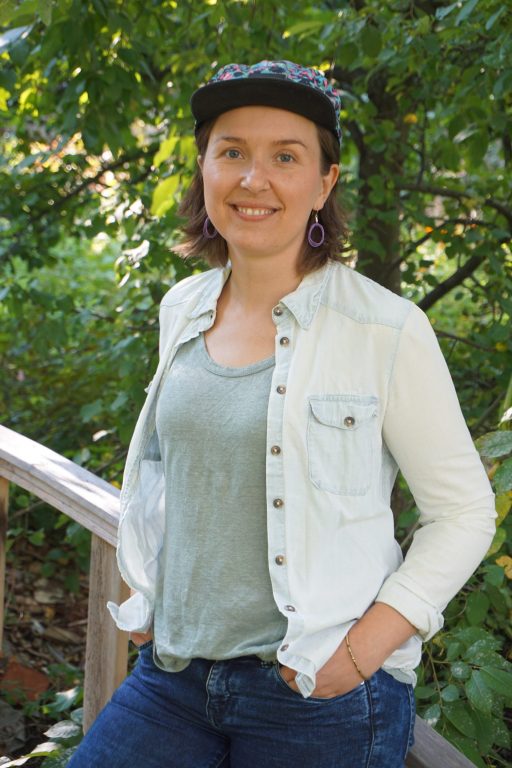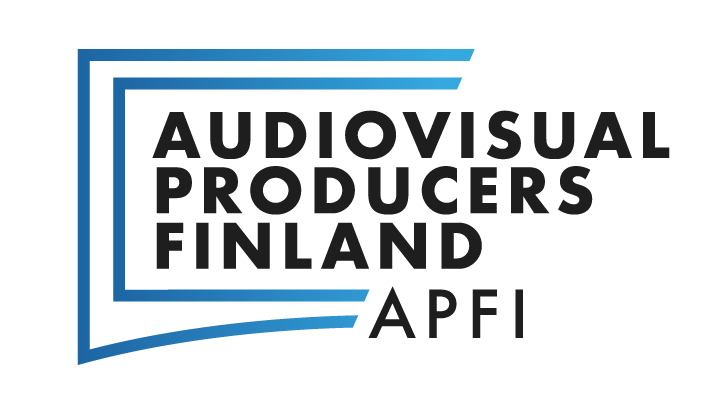APFI introduces a carbon calculator for audiovisual productions – Finland a pioneer in ecological sustainability

The calculator project aims to minimize the environmental burden of audiovisual productions and to increase ecological knowledge across the domestic and international industries. What will it mean for the future of film and television?
In the spring of 2021, Audiovisual Producers Finland APFI received funding from the Finnish Film Foundation for a project aimed at developing a sustainability strategy for the Finnish audiovisual industry. The Ministry of Education and Culture further supported its launch, with several stakeholders committing themselves to the project through financial contributions.

Anne Puolanne has worked in TV for over 10 years. She holds a BA both in media (2012) and sustainability (2020). Photo by Jere Ruuhiala.
The coordinator of the strategy at APFI is Anne Puolanne, who co-wrote Ekosetti (available also in English) alongside Kaisa “Kaika” Astikainen: a 2019 publication aimed at directing the industry towards more ecologically sustainable production. Puolanne and Astikainen are also co-founders of Nordic Eco Media Alliance, NEMA.
The pair acted as specialists at a “green roundtable,” introduced last year by APFI, which brings together several organizations from the industry, including the Finnish Film Foundation. Albert, the sustainability initiative and eco-toolkit including a global carbon calculator designed by BAFTA, was introduced at the table.
“There were discussions about our own local calculator as well as international models,” says Puolanne. “A local calculator would potentially be the most accurate but building one from scratch takes time and resources. If every country has their own system, it becomes nearly impossible to report numbers and keep accurate statistics in an international context. Albert has been around for 10 years. It will take a long time before any other system can beat it in terms of functionality.”
“We have a three-year licence to Albert, which we will manage locally. We aim to launch the pilot-stage early next year with a limited number of productions. The schedules of the productions are crucial when deciding who can join in at this stage. We are hoping to include productions from different areas in Finland, both TV and film.”
Kickstarting the project together with producers
Albert is expanding its operations internationally, but in many countries it is being used by a single network or company. Finland is the first country where Albert has been acquired jointly for the entire industry to use, regardless of production or company size.
In September 2021, Puolanne will attend a BAFTA training course on Albert so that she can consult Finnish productions on how to operate the calculator.
“The beginning will involve a lot of learning and discussion with producers,” Puolanne reflects. “We are all going to be in this together from the earliest stages. I think perhaps this is ideal, as you can take the time to develop and explore things in depth as opposed to jumping on a moving train. Luckily a lot of people have expressed an interest in the program already. By trying and mapping things out together at this pilot-stage, we can discover what new information we need to gather in order to lower the environmental impact of the productions.”
The data accumulated by the calculator is valuable in many ways. “The project will chart how things are done here. I have a feeling that when it comes to environmental issues, the production culture is in a pretty good shape here in Finland. But we can’t prove it until we’ve studied it.”
Puolanne believes that Finland will soon act as a model country in terms of environmental production. “Our reputation is good: even though we are plagued constantly by slim resources, we do quality work. We also have a well-functioning infrastructure and recycling system. We just need to think about things from a different angle and to consider environmental sustainability as part of the decision-making process at an early stage. You can begin by discussing the possibility of train travel as opposed to flight when traveling in Finland, as well as finding out whether your office uses renewable energy.”
Being at the forefront pays off, if you want to work internationally
All the Albert tools and training will be free to use for productions, but it will require that the production companies allocate appropriate time to use it. If companies want to apply for the more intensive three-level certification, an even greater commitment will be required. These certificates will be granted in the UK.
Puolanne notes that for companies seeking international funding, being ecological is already a big asset, and will continue to be even more so in the future. “There are international examples of accountability being important to financers. If this trend holds true here in Finland, environmental sustainability may soon become a requirement among many funders and networks. For example, the venture capital investor IPR.VC, already requires a commitment to sustainability from the projects it is investing in.”
“Here in Finland, I wouldn’t make using Albert a condition for getting funding just yet. On the other hand, some people have suggested that advancing issues like this would be easier if things were demanded by the financers. For now, though, there will be plenty of time to get acquainted with things in peace and on your own terms. I think it’s easier to learn things this way, rather than trying to catch up when your funding depends on it.”
Should funders offer incentives for those taking part in the program? Money is a delicate subject, but Puolanne sees this that this is something we must do: no industry is exempt from the increasing importance of ecological sustainability as we aim for a carbon neutral Finland. Further, the assumption is that working in an environmentally friendly way will ultimately lead to financial benefits too.
“The reputation that Finland and the Nordics have is also something to consider in terms of increased international collaboration. The focus doesn’t always have to be on growth, but the fact is that the industry here is growing. More and more productions are coming our way, and through this project we can not only offer them attractive incentives and the usual things, but also a place to shoot things sustainably, and offer Finland as an ethical location. Now being able to offer concrete tools to do this can have a great impact in the way higher profile productions direct their budgets.”
Last year, the Finnish Film Foundation conducted an eco-survey with domestic producers that suggested there was an increasing desire to work ecologically. But is good will alone, enough?
“There is a genuine desire to change and people are craving practical tools to do so. During the pandemic, people have experienced many kinds of fatigue. Working according to your own values has brought many a newfound sense of meaning. Those who think this is useless don’t come to me. I won’t pretend to know how the entirety of the audiovisual industry here feels, but I am optimistic. Even though the industry here is relatively small, it is under constant scrutiny from the media. This means that we also have an opportunity to affect change on a wider societal level through our project.”
 APFI is developing a strategy for increased sustainability in the Finnish audiovisual sector. The aims include wider societal change as well as securing better living and working conditions for current and future generations of the country. The project began in the summer of 2021, first focusing on environmental issues and later expanding to social, cultural and economic sustainability. The strategy for sustainability is made possible through the financial contributions of our committed partners.
APFI is developing a strategy for increased sustainability in the Finnish audiovisual sector. The aims include wider societal change as well as securing better living and working conditions for current and future generations of the country. The project began in the summer of 2021, first focusing on environmental issues and later expanding to social, cultural and economic sustainability. The strategy for sustainability is made possible through the financial contributions of our committed partners.
Finland’s national sustainability strategy initiative is partly funded by a consortium of industry partners, which currently include:
Ministry of Education and Culture
Finnish Broadcasting Company YLE
Promotion Centre for Audiovisual Culture AVEK
Finnish Film Foundation
Business Finland
City of Helsinki
City of Forssa
Finnish Lapland Film Commission
North Finland Film Commission
West Finland Film Commission
East Finland Film Commission
South East Finland Film Commission
Film Tampere
Åland Film Commission
Trade Union for Theatre and Media Finland
AVATE (union of Finnish Actors’ Union, Association of Finnish Film Directors SELO, and Writers Guild of Finland)
